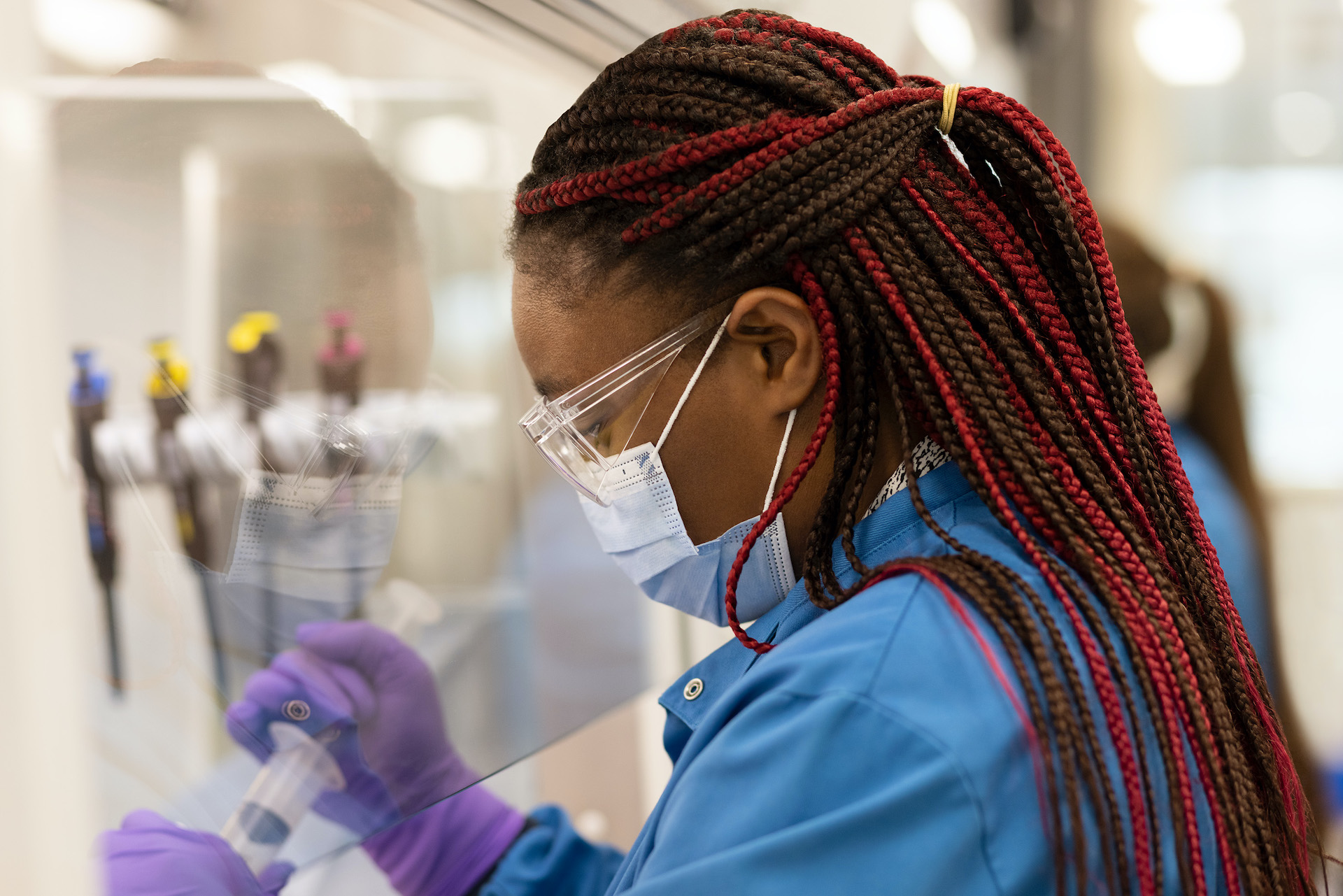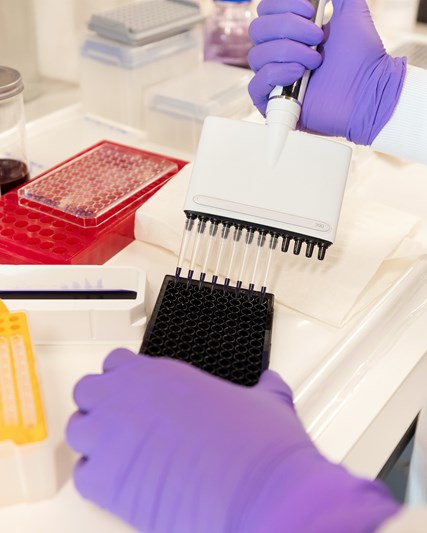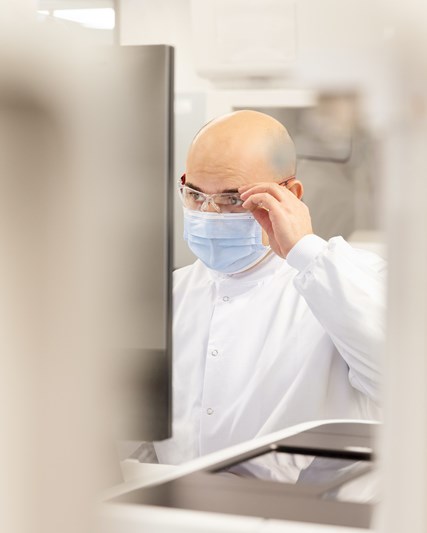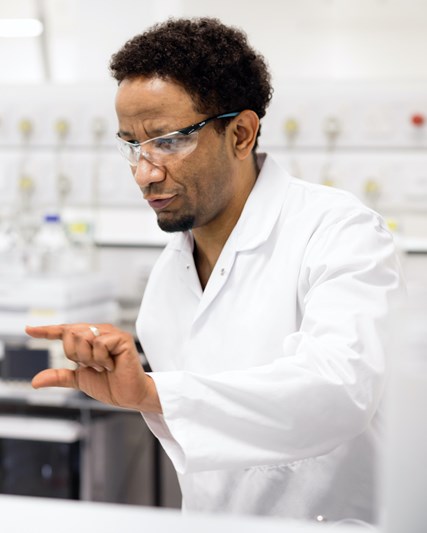When you look at the numbers related to gynaecologic oncology, the scale of our mission is clear. Nearly 1.4 million people were diagnosed with a gynaecologic cancer last year and many more currently live with one of these conditions.[1]
Cervical and ovarian cancers are the fourth and eighth most commonly occurring cancers in women: nearly 600,000 and 300,000 new cases were diagnosed worldwide in 2018 respectively.[2] Gynaecologic cancers are typically diagnosed in the later stages of disease progression, when treatment may slow the cancer, but not entirely stop it.
If these figures sound alarming, imagine being one of those millions diagnosed with a gynaecologic cancer who must now ask – what’s next? GSK scientists are working hard to answer that question. Gynaecologic cancers are a vital part of our work in oncology, and we are developing transformational medicines to help people living with these conditions.
Here, Tania Small, MD – our VP and Global Medical Oncology Franchise Head – discusses our approach to R&D, including the pursuit of innovative treatments.
Q: What types of gynaecologic cancers are there?
A gynaecologic cancer is any cancer that starts in the female reproductive organs.[3] There are five cancers that fall into this category: ovarian, endometrial, cervical, vaginal, and vulvar. Cancer is a result of the process of abnormal cells growing out of control.
Q: What makes these forms of cancer different from other cancers?
While every cancer has its own set of specific characteristics, there are a few things that set gynaecologic cancers apart from the rest. Symptoms often don’t appear until later stages of the disease, and sometimes they may be easy to overlook or dismiss.
There is a dire need for new, more effective treatment options, as most ovarian and recurrent endometrial cancers have limited treatment options and, as a result, continue to have poor outcomes. This is one reason why we collaborate with other cancer stakeholders to support continued innovation in gynaecologic cancers, and build awareness.
Q: What does the future of gynaecologic oncology look like?
The good news is the research community is closing in on a more holistic approach for gynaecologic oncology, which we hope will yield the possibility of better outcomes and ultimately, a cure. Twenty years ago, prospects for those diagnosed and living with gynaecologic cancers were dismal. Many faced therapies with potentially tortuous side effects that gravely impacted quality of life and yet had only minimal impact on their progression-free survival.
Since then, a lot has changed. Advancements in diagnostic platforms, better understanding of prognostic factors and ongoing development in fields like immuno-oncology and targeted therapies have paved the way toward innovative new treatment options. Additionally, the gynaecologic oncology advocacy community has grown and strengthened, challenging us to search for a cure and reminding us that a medicine is worthless if the treatment is more arduous than the disease.
Q: How is GSK committed to advancing gynaecologic oncology research and care?
At GSK, we are making strides specific to gynaecologic cancers that are already allowing us to answer the ‘what next’ question more robustly than ever. We have a unique research and development approach, utilising synthetic lethality and immuno-oncology to target specific proteins and biomarkers in ovarian cancer and endometrial cancer, enabling us to develop more effective, targeted treatments. Our priority is to continue to evaluate our approved therapies and investigational treatments in cancers and settings in which new treatments are most needed, and to bring them to patients as quickly as possible.
As a physician turned healthcare industry leader, my philosophy is that the treatment team includes everyone around the patient: their clinical care team, personal caregivers, the advocacy community and more. We all have an important role in connecting patients who need medicines – whether they know it or not – with treatment that has the best potential to transform their future. And most importantly to make real progress, individuals diagnosed with cancer must be truly empowered and become a part of the collective process.
That’s why GSK isn’t just looking inwards to our lab benches, but focusing on the patient world outside our windows to truly practice patient-driven science. People with gynaecologic cancers need top-notch support, clear information, and high quality of life. They don’t just want to survive, they want to LIVE!
At GSK we are proud to support awareness campaigns like World Gynecologic Oncology (GO) Day. Each year on 20th September, the entire gynaecologic oncology community raises awareness about gynaecologic cancers, and the steps we can take to help protect themselves against these diseases. Effective medicine can have a greater impact when partnered with community awareness and access – and World GO Day provides a valuable platform for this. By continuing to support innovation in this field, we can keep our patients’ voices at the heart of our mission as we develop novel treatment programmes to meet their needs. Together, we can get ahead of gynaecological cancers and transform outcomes.
References:
[1] Sung H, Ferlay J, Siegel R, et al. Global cancer statistics 2020: GLOBOCAN estimates of incidence and mortality worldwide for 36 cancers in 185 countries. CA Cancer J Clin. 2021.doi:10.3322/caac.21660
[2] World Cancer Research Fund International. (2018). Worldwide cancer data. Retrieved 16 September 2020, from https://www.wcrf.org/dietandcancer/cancer-trends/worldwide-cancer-data
[3] CDC;2019;Basic Information About Gynecologic Cancers. https://www.cdc.gov/cancer/gynecologic/basic_info/index.htm. Published 7 August 2019. Accessed 7 September 2021.




